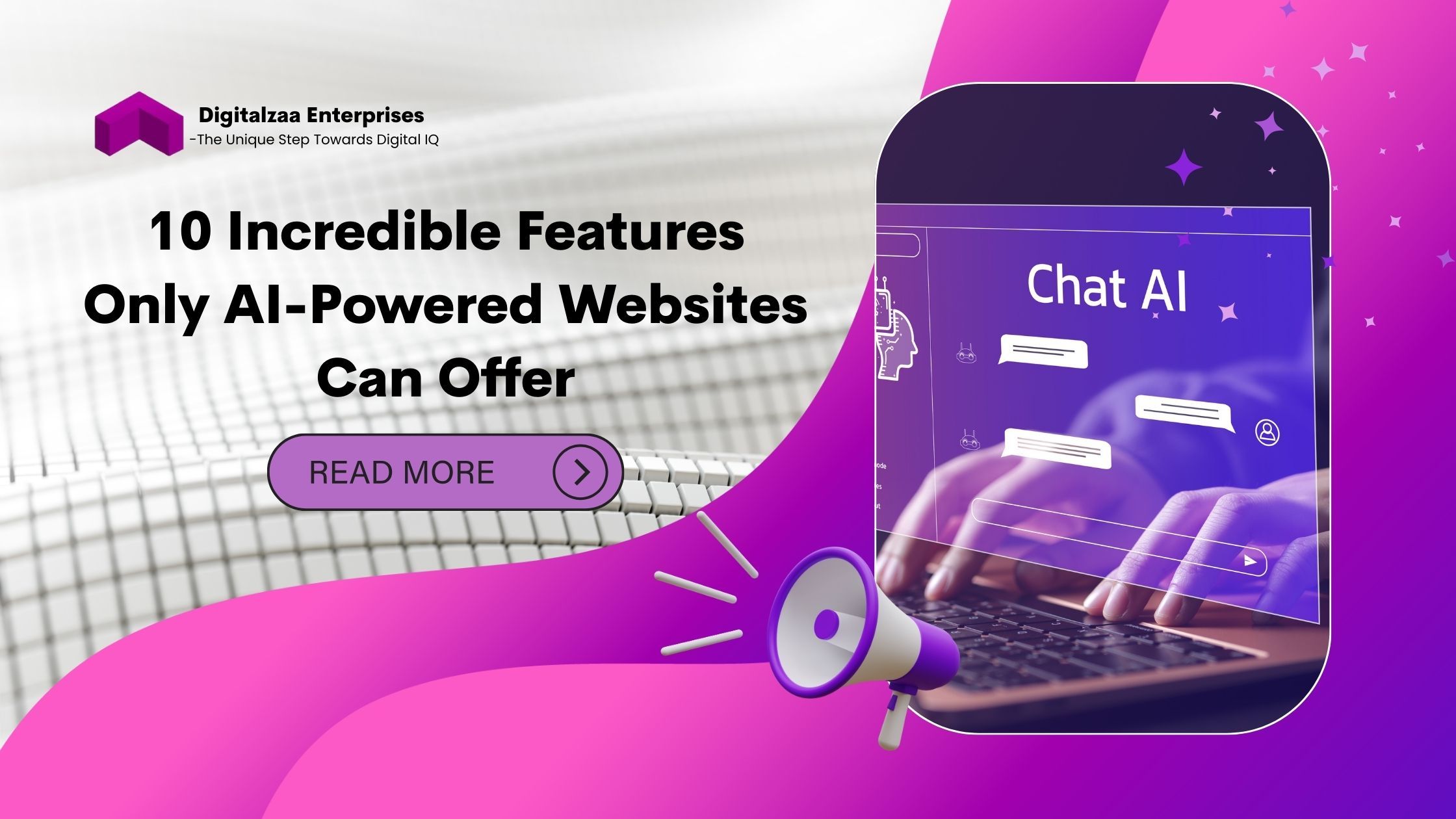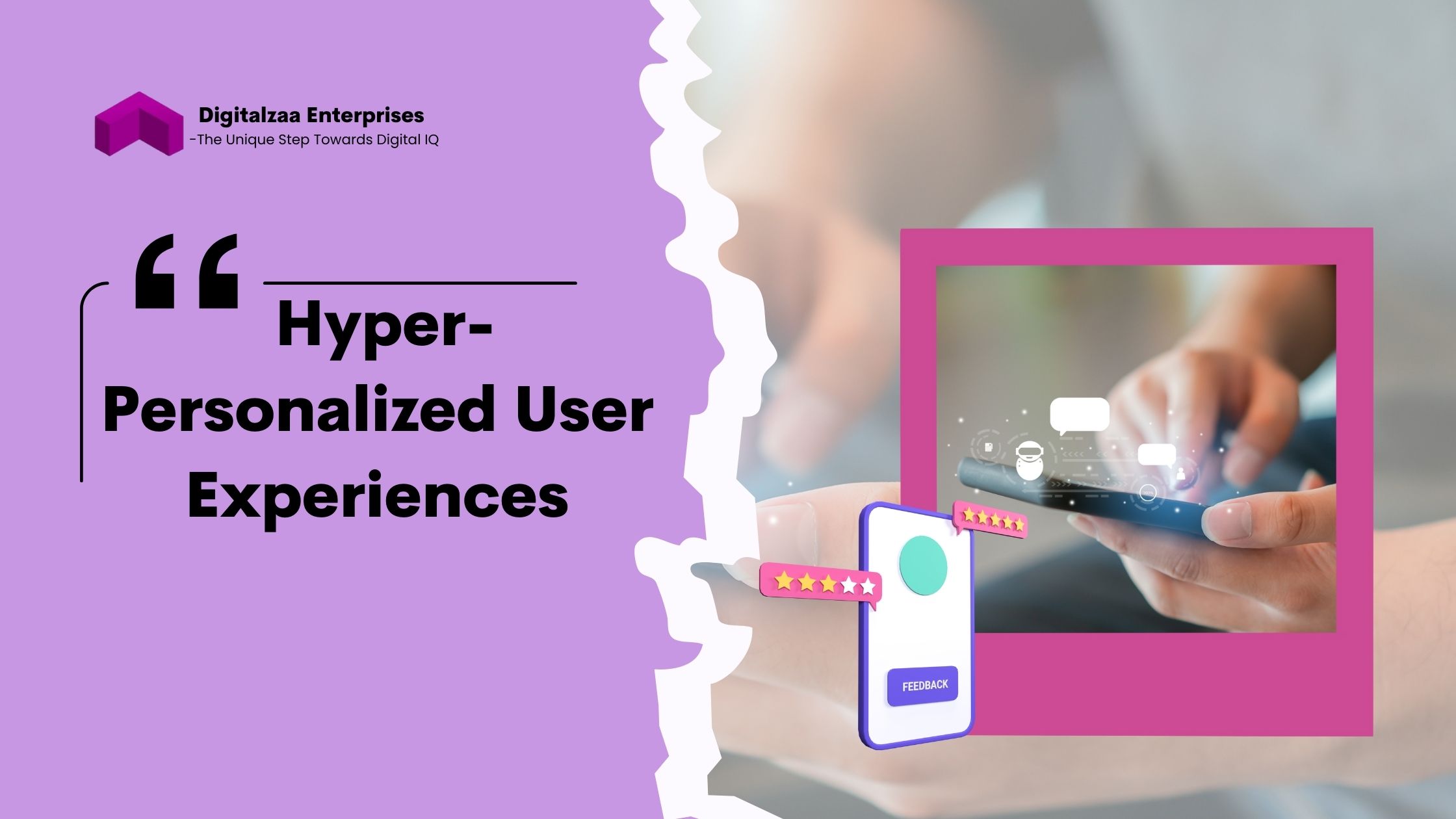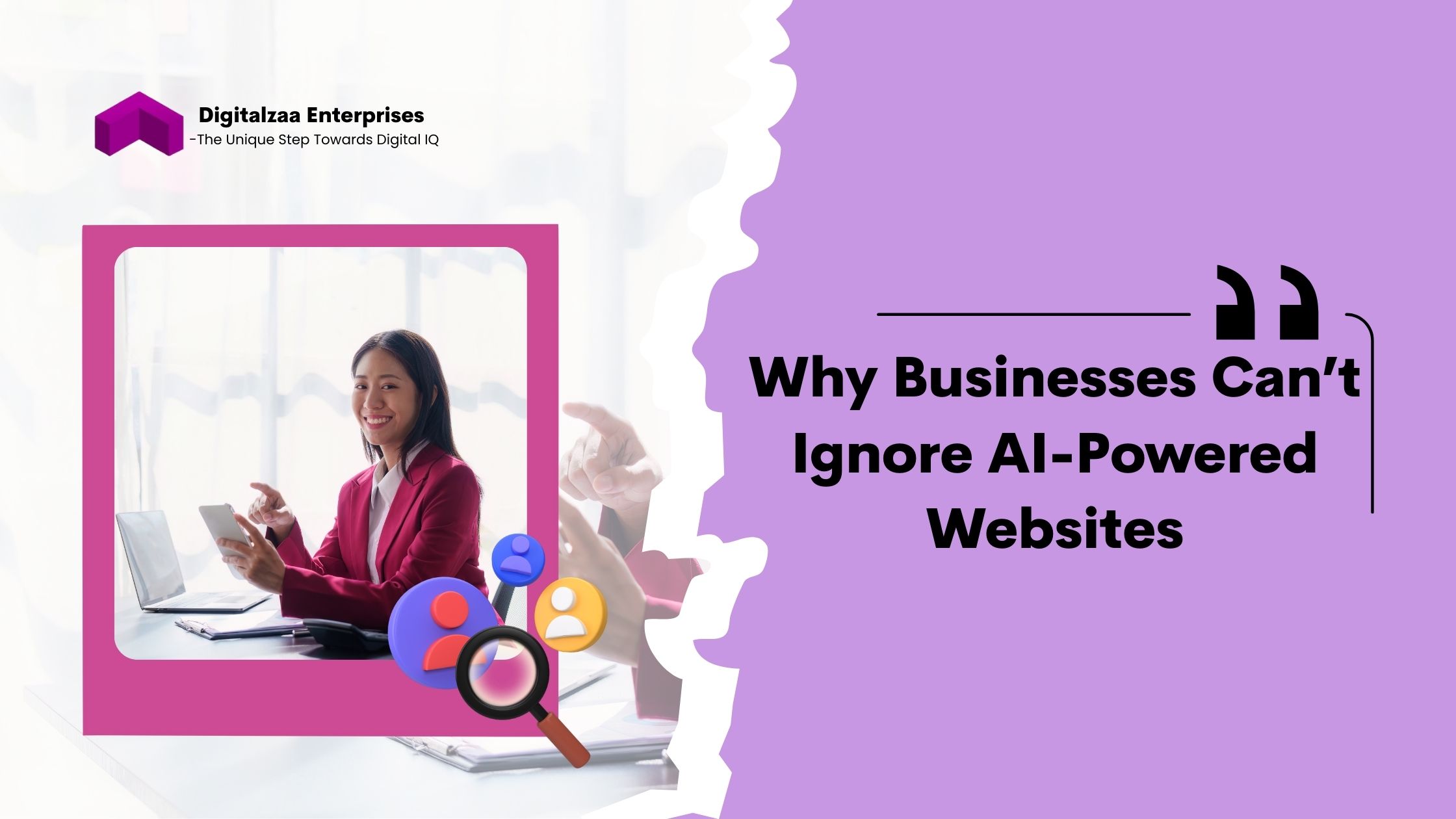10 Incredible Features Only AI-Powered Websites Can Offer.

In today's fast-paced digital world, websites are more than just online brochures—they are intelligent, interactive platforms designed to attract, engage, and convert visitors. The biggest game-changer in web development and user experience? Artificial Intelligence (AI).
AI-powered websites are revolutionizing how businesses interact with their audiences. They analyze behavior in real-time, personalize content, predict user intent, and automate complex workflows. These capabilities not only boost user engagement but also significantly enhance business performance.
In this blog, we’ll explore 10 incredible features that only AI-powered websites can offer, features that are reshaping the digital landscape and setting a new standard for online experiences.
1. Hyper-Personalized User Experiences

One of the most powerful applications of AI in web development is hyper-personalization. Traditional websites offer the same static content to every visitor. In contrast, AI-powered websites dynamically adjust their content, layout, and recommendations based on each visitor’s:
- Browsing history
- Click behavior
- Geographic location
- Demographics
- Device and time of access
For example, an e-commerce website can instantly recommend products a user is more likely to purchase based on their past purchases and search behavior. AI-driven personalization boosts user satisfaction and conversion rates by making every visit feel tailor-made.
2. AI Chatbots and Virtual Assistants
AI-powered websites are never asleep. Chatbots and virtual assistants offer real-time support, guidance, and responses to user inquiries 24/7. Unlike traditional chat systems that rely on human intervention, AI chatbots use Natural Language Processing (NLP) and Machine Learning (ML) to:
- Understand complex queries
- Provide contextual responses
- Learn from past interactions
- Route users to relevant resources
Over time, these bots evolve, improving their conversational abilities and providing more relevant answers. This not only enhances user satisfaction but also reduces support costs significantly.
3. Predictive Search and Intelligent Recommendations
AI has redefined how users search and discover content. With predictive search, AI algorithms analyze user input in real time and offer suggestions before a user finishes typing.
For instance, if someone starts typing “smart…,” the AI can predict and offer search terms like “smart home devices,” “smartphones,” or “smart watches” based on trends and personal history.
Similarly, intelligent recommendation engines suggest articles, products, or services that align with the user's interests. Think of how Netflix or Amazon recommends content—you can now implement similar logic on your AI-powered site.
4. Dynamic Content Generation
AI tools can generate content dynamically—from personalized headlines and product descriptions to entire blog posts and reports. By analyzing a user’s profile, past behavior, and preferences, AI can create:
- Customized newsletters
- Personalized landing pages
- Targeted product recommendations
- Auto-generated content summaries
This level of automation reduces the time marketers spend creating content while increasing its relevance and effectiveness.
5. Voice Search Optimization
As voice assistants like Siri, Alexa, and Google Assistant grow in popularity, optimizing for voice search becomes crucial. AI-powered websites integrate seamlessly with voice interfaces, enabling users to search, navigate, and interact using spoken commands.
By understanding natural language queries and providing conversational responses, AI-driven sites deliver a smoother user experience, particularly for mobile and on-the-go users.
For example, an AI-enabled travel website can respond to a voice query like, “Show me affordable weekend getaways from New York,” and return curated options instantly.
6. Real-Time Behavioral Analytics and Adaptation
Traditional analytics provide historical insights, but AI-powered websites analyze user behavior in real-time. More importantly, they react instantly.
- If a user hesitates before clicking “Buy Now,” a discount popup might appear.
- If someone scrolls repeatedly over a section, a chatbot could offer help.
- If exit intent is detected, the site could launch a last-minute offer.
This real-time adaptation transforms passive sites into responsive, user-focused platforms that boost engagement and reduce bounce rates.
7. Advanced A/B Testing and Optimization
A/B testing traditionally involves manual setups and weeks of data collection. AI changes the game by automating this process with multivariate testing and continuous optimization.
AI-driven testing platforms can:
- Test multiple elements simultaneously (CTAs, headlines, layouts)
- Identify the best-performing combinations
- Automatically deploy the optimal version without human intervention
This continuous learning and adaptation ensure that your website is always optimized for the best user experience and highest conversion rate.
8. AI-Driven Cybersecurity
Cyber threats are evolving fast, and traditional security measures often fall short. AI brings proactive defense mechanisms to websites with features such as:
- Anomaly detection (e.g., unexpected login attempts)
- Automated threat response
- Real-time monitoring of user behavior
- Adaptive firewalls and security protocols
By identifying patterns and learning from past attacks, AI protects websites from fraud, DDoS attacks, phishing, and other cyber threats with unprecedented speed and precision.
9. Emotion and Sentiment Analysis
AI can now go beyond words and detect the emotional tone behind user actions and content. Whether through analyzing customer reviews, social media comments, or chat interactions, sentiment analysis provides deep insights into:
- How users feel about your brand
- What content resonates with them emotionally
- Which experiences lead to frustration or satisfaction
Websites can then adapt accordingly, whether that means altering messaging, providing special offers, or adjusting the customer journey to enhance emotional connection and loyalty.
10. Automated Image and Video Recognition
AI-powered websites are capable of understanding images and videos through computer vision. This technology allows for:
- Tagging and categorizing uploaded media
- Identifying products within images
- Creating alt text automatically for accessibility and SEO
- Facial recognition for login or personalization
- Content moderation to ensure compliance with guidelines
For instance, fashion retailers can let users upload a picture of an outfit and then use AI to find similar products in their store. This takes visual search to a whole new level and drives higher engagement.
Bonus: AI-Powered Content Translation and Localization
With AI, websites can break language barriers effortlessly. Machine Translation (MT) and Natural Language Generation (NLG) enable:
- Real-time translation of content into multiple languages
- Localization of tone, slang, and cultural references
- Multilingual chat support via AI bots
This makes AI-powered websites incredibly effective for global businesses looking to connect with diverse audiences without the high cost of manual localization.
Why Businesses Can’t Ignore AI-Powered Websites

Now that we've explored these features, the benefits become abundantly clear. AI-powered websites:
- Deliver personalized experiences that increase engagement
- Provide faster, more efficient customer support
- Enhance SEO and discoverability with intelligent content
- Improve conversion rates through real-time optimization
- Protect against evolving security threats
In a hyper-competitive digital landscape, these are not “nice-to-haves”—they are critical differentiators that give businesses a decisive edge.
Future Outlook: Where AI in Web Development Is Heading
The evolution of AI in web design is far from over. In the near future, we can expect:
- Emotionally intelligent interfaces that adapt tone and content based on user mood
- Augmented reality (AR) integration for immersive shopping and learning experiences
- Zero-code AI web builders that create intelligent websites in minutes
- Predictive UX that evolves before user needs arise
As AI continues to grow more sophisticated, websites will become less like static pages and more like intuitive digital assistants—anticipating user intent, solving problems, and offering value at every interaction.
Conclusion
The features discussed above clearly illustrate that AI-powered websites are not just a trend—they represent the future of the internet. From real-time personalization to intelligent automation and predictive capabilities, these advanced features are helping brands deliver unmatched digital experiences.
Whether you’re a startup or an enterprise, investing in AI-enhanced web technology is no longer optional. It's essential for staying competitive, agile, and relevant in a digitally empowered world.
So if you're planning your next website or digital transformation strategy, consider this: Can you afford not to go AI?


